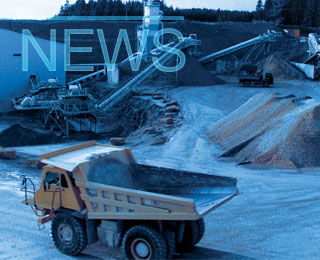Global Credit Ratings has today affirmed the national scale ratings assigned to Kenyan cement producer ARM Cement Ltd of A(KE) and A1(KE) in the long term and short term respectively, with the outlook accorded as Stable.
Summary rating rationale
Global Credit Ratings (GCR) has accorded the above credit rating(s) to ARM Cement (ARM) based on the following key criteria:
ARM is becoming an increasingly important player in the East African cement industry, with its market share having grown to 18 per cent in 2014, from 11 per cent in FY10. On-going expansion has underpinned ARM’s double digit revenue growth over the review period, with the exception of FY14 when no new capacity was introduced. New capacity will come on stream in FY16, which will drive growth, albeit tailing off thereafter.
With the completion of the Tanga plant in 4QFY14, ARM has secured clinker sufficiency which is a major competitive advantage, given the clinker shortfall in the region, GCR noted. This should help reverse the downward trend in the operating margin evidenced over the review period, driven in large by the high cost of imported clinker, it states.
Due to the substantial capex spend, debt has increased from KES8.7bn at FYE10 to KES21bn at FYE14, with net gearing and net debt to EBITDA peaking at 224 and 666 per cent. respectively (FYE13: 168 per cent; 497 per cent). With short term debt accounting for 66 per cent of the total at FYE14 and negligible operating cash cover of debt, liquidity metrics were weak. Concerns about the high gearing and weak liquidity have, however, been tempered by the redemption of KES2.7bn (USD28m) in maturing facilities in 1H F15, as well as the likely conversion of the US$50m AFC facility to equity, GCR adds. In addition, ARM has engaged three banks to restructure its remaining US$150m in debt through a syndicated loan that will likely comprise a mix of long and medium term facilities.
Key to any upwards rating movement is reducing debt and gearing metrics to more sustainable levels. To this end, current efforts to reduce the debt burden and improve the liquidity profile are positively noted. Sustained growth in profitability and firmer margins also bodes positively for the group. However, delays in public infrastructure spend and thus decreased demand for cement, as well as unanticipated working capital pressures, leading to increased debt, may further strain gearing and warrant a downward rating review, GCR concludes.

Cement demand contracting sharply in USA
Weak business and consumer confidence, amid economic uncertainty, is weighing heavily on demand ...